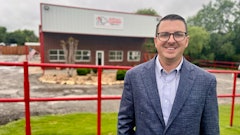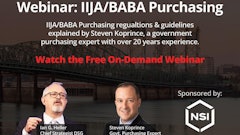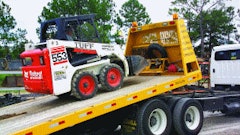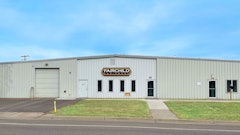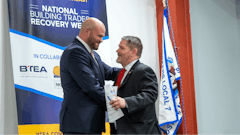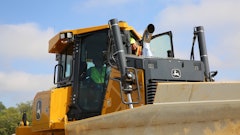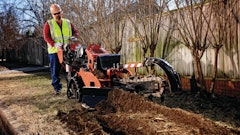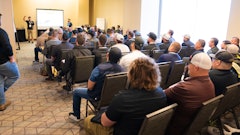
Sounds pretty simple, doesn't it? We all think "I'm doing what I do best," but it goes much deeper than that.
Are we really doing what we do best when each time we think of a new type of work we say, "I can do that." Before you know it, you're off in a different direction when you never really got the last direction going strong.
Every time you take on a new type of work, it distracts you from the established work. The more time you focus on the new distraction, the more your established work suffers in quality and productivity. The longer you focus on one type of work, the better you, your estimators and your field crews will get at learning the tricks that make it profitable.
This is not to say you shouldn't expand your business, but make sure the new types of work you take on make sense.
Strategic planning
So how do you identify what you should focus on? This is where strategic planning comes in. Don't let the term scare you. Strategic planning is critical. The amount of time you should spend on it depends on the size of your company, the market you serve, and so on, but no matter what, every business needs to do some strategic planning.
In this, you can do a basic S.W.O.T. method, where you examine your Strengths, Weaknesses, Opportunities and Threats. By analyzing these areas, you can identify the business segments on which you should focus.
I recommend that you hire a consultant or an experienced businessman that you trust and has been through the process. This type of outside help will keep you on track and push your way through the process.
Book a meeting room at a local hotel for the day, bring yourself, your wife if she is part of the business and one or two key people you feel would buy into the process. It's very important to hold the meeting away from the office, with cell phones and other devices turned off, so there will be no distractions.
You would be amazed at what comes out of these meetings, but one of the main things is to identify what you should be doing with the resources you have while thinking about the weaknesses and threats. The important thing is to encourage everyone to come up with ideas, no matter how crazy they may seem.
In 1985, we held our first strategic planning session. We identified one of our biggest weaknesses as being winter. Our guys wanted to work 52 weeks a year. At the time, we did residential tear-out and replacement, which meant we just shut down by November.
We looked at our opportunities and came up with all sorts of oddball ideas. For example, we talked about painting lawn furniture or boats during the winter. We also identified an opportunity that really changed our business. We're in an industrial area, so there is all this industrial square footage under roofs. Why don't we market ourselves as doing industrial work? That allowed us to work 12 months a year and now represents the majority of our business.
Marketing
Once you have identified what you do best, identify your market and tell the market what it is that you do best, and don't let up. Marketing is not advertising. People have different definitions, but I've narrowed it down to "the perpetual presentation of your business to the market you want to work for." That means always having your name out there in front of people.
Saturate your market with the message of who you are and what you do. One of the easiest ideas is making sure your name is on all your trucks and that there are signs at all your jobsites. Other ways we've used to promote our company are newsletters, home and garden shows, sponsoring a little league team and getting our names on bus stop benches throughout the area. Even things like talking to people at social events and getting involved in community activities can pay dividends.
Whether business is good or bad, be consistent with your marketing. Too many companies look at it as an unnecessary expense when in reality it can be one of the most important parts of your business.
Efficiencies
Build systems around your identified niche. As you do your niche work, develop and tweak your systems until they're fine-tuned. The longer you do a particular type of work, the better your personnel will get at what they do. As they get more acclimated to that type of work and the paperwork that goes with it, they begin to feel better about what they do. It all adds up to a more productive workforce.
Field employees don't like change. When they do one thing and do it well, they like it. The other thing to consider is that different people are good at different things. If you've got a great flatwork crew, don't assume their success will easily translate into, for example, curb and gutter. Take one type of work and get good at it and get your crews good at it.
The systems and efficiencies you build into your work through your experience is what can set you apart from the competition. When you've got it running so smoothly that the jobsite runs itself, that's when you should think about adding a new type of business. Look at other types of work that fit well with, or complement, what you are already doing. Don't try to jump into something that is entirely different from what you have specialized in up to this point. For example, a lot of contractors are adding decorative concrete to their offerings. Well, if you're a flatwork contractor thinking about that, go into something like stamped concrete, because of its similarities to gray flatwork, as opposed to starting right into countertops.
Be strong about it, be disciplined and don't go jumping ship to the latest and greatest thing you saw in a trade magazine or at a show while you're still nurturing this one. We are all guilty of jumping into too many types of work without developing one type extremely well. Identify what you do best and excel at that. Excellence is the superlative execution of the basics.
Rocky Geans is president of L.L. Geans Construction Co. and has more than 30 years' experience in the concrete industry. He is also vice president of the American Society of Concrete Contractors and a popular industry speaker and consultant. Rocky can be reached at (574) 255-9671. For more information on Rocky's seminar schedule, visit www.rockygeans.com.











